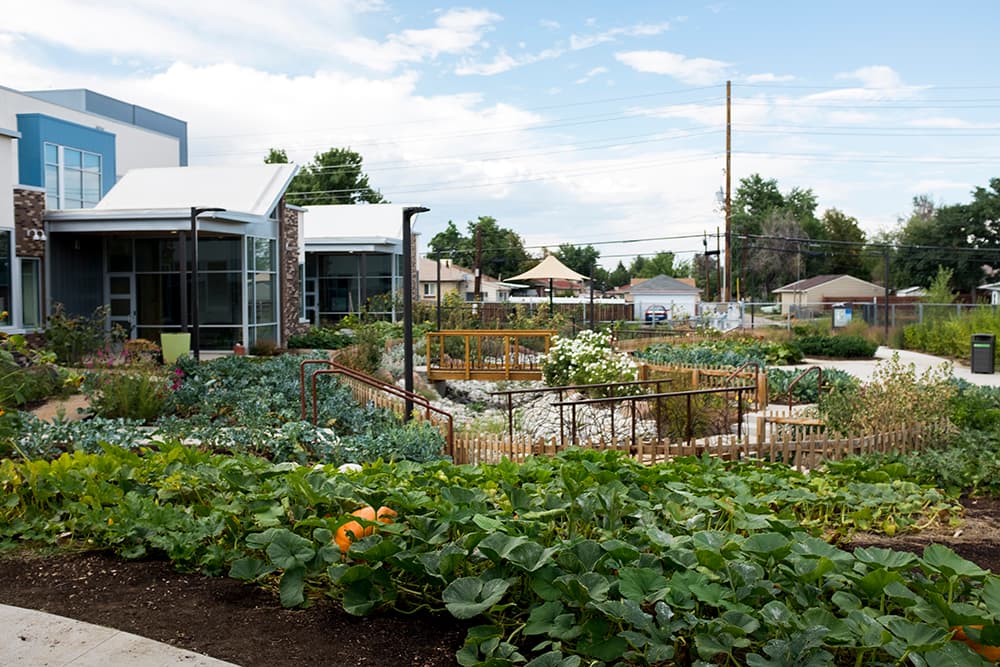Update: This story has been updated with a response from the Department of Human Services.
After four years of operating its mental healthcare network under one framework, Colorado is asking for mental healthcare providers to make their case to be part of a new statewide approach.
Critics say the new system from the state's Office of Behavioral Health would involve cutbacks in funding for several regions and changes in the way providers allocate money, and would break up the current mental health network's four districts into seven.
The mental health providers in the network, usually referred to as the Colorado Crisis Services, are responsible for services like creating 24-hour walk-in mental health facilities, coordinating services between different stakeholders in an area and providing mental health professionals to assist those experiencing mental-health crises in the field.
Not one of the four current service providers will bid to become a provider under the new RFP — which bears the unwieldy name Mobile Crisis, Walk-In Crisis, Crisis Stabilization, and Crisis Respite Services Request For Proposal #2019000043 — and according to Colorado Behavioral Healthcare Council CEO Doyle Forrestal, that's because they're concerned about the terms of the proposal.
One of the triggers for the change was a comment from an independent consultant hired by the Colorado Department of Human Services, of which the Office of Behavioral Health is a part, that suggested it would be a good idea to align the mental health crisis network regions with that of the state's Medicaid map.
The proposal has received significant pushback from stakeholders in Colorado’s mental health services ecosystem.
“We’ve been able to do that [provide services] for four years in a comprehensive way. To upheave and unhinge that system is difficult for me to understand,” said Lori Banks, COO for Community Crisis Connection.
The concern was so intense, in fact, the Colorado Behavioral Healthcare Council filed a protest asking for it to be withdrawn because of what it said would be a dramatic impact on the amount and quality of mental health services provided throughout the state. Law enforcement agencies from around the state, especially those in rural areas, have also expressed concern about the effects this would have on their areas.
DHS responded to a Denverite interview request with a statement saying that the proposed changes came out of the Crisis Steering Committee and its independent facilitator. They say funding has been adjusted for the new seven-region setup and “funds will be allocated based on county population and poverty rates.”
The department says they will “continue to pursue additional funds to support the Crisis System, with a focus on data, technology, and access in the community.” That will include trying to obtain the extra funds from the governor’s budget for next year.
The Nov. 2 protest has been denied because, according to Forrestal, the state says it was not filed in a "timely manner." They were given 10 business days to appeal, and she says they plan on doing so. The appeal will be handled in Denver's district court, according to Forrestal, and if they are unsuccessful the current service providers will be out and the new service providers will begin administering services in the new seven-district network in the summer of 2019.
Opponents of the change believe it would violate the spirit of SB-207, a law that reinforced a comprehensive, statewide system designed to deal with mental health crises. In the language of the law, the state legislature concluded that Colorado should use a network of mental health providers to handle mental health crises -- as opposed to relying on law enforcement to deal with what experts call a healthcare issue.
The law was a result of an effort by Colorado’s General Assembly to put an end to the incarceration of people who had done nothing criminal but were experiencing mental health crises. As the protest points out, the law states that “Colorado should immediately end the use of jails, lockups or other places for the confinement of persons charged with or convicted of penal offenses as placement options for individuals who have been placed on an emergency seventy-two hour mental health hold but who have not been charged with nor convicted of a crime.”
The protest concludes that the new system would be in direct violation of this statute, as it would result in a reduction of resources for mental health service providers and the burden of handling these situations will fall back to the criminal justice system. SB-207 also clearly states that the mental health network should be the preferred method for interacting with those experiencing mental health crises.
“A big piece of where people land who are in crisis is in the criminal justice system. Our priority is that people with mental health issues and substance abuse issues should be treated in a healthcare setting,” Forrestal said.
Mental healthcare providers say the relationships they've built over the last four years matter.
Opponents believe the new proposal will disrupt four years of newly established relationships built between law enforcement agencies, the consumers of mental health services and the mental health care providers themselves.
Under the current framework, the Denver Metro Area was one cohesive block serviced by Community Crisis Connection. If the changes go through, that region is split it up into three different areas with three different providers.
“I think it makes it actually difficult and confusing for consumers. To know for four years they've been able to access the Denver Metro region as a whole, doesn't matter if you're in Denver and you cross the street into Aurora, that was all a part of Community Crisis Connection,” Banks said.
She said that establishing trust between police departments, emergency service providers, those that consume mental health services and the state government has been no easy feat, and a change now could break up some existing relationships. It’s important, she said, for people to know where they can go to receive services and to know that these services will be readily available when they need them.
Delta County Sheriff Fred McKee is among the law enforcement authorities from around the state citing similar worries.
“We work together as a region to support crisis services. If there are different crisis contractors, we fear we will lose the coordination and additional services provided by these well-established partnerships developed by Western Slope CASA,” McKee writes in the protest.
There are concerns that the financial impact would reduce services, especially where they're already scarce.
“We protested the RFP based on the fact that it's taking resources away from direct services. Our biggest concern is that the people of Colorado have the necessary support,” Forrestal said.
The new proposal allows for up to 25 percent of the providers' budgets to go to administrative cost, and Banks -- of Community Crisis Connection -- worries that will directly impact on-the-ground services with rising administrative costs spurred on by changing technological requirements that providers will have to meet. The funds allocated for the providers in the contract will remain the same, but after being split up into more districts with higher overhead, opponents are concerned that the result will be fewer services on the ground for those in crises.
On Nov. 1, the governor's office released recommendations for the 2019-20 budget, including suggestions to increase the funding for the network to facilitate the additional requirements like enhanced electronic data collection. The current providers, however, are worried that there are no guarantees that those funds would be available.
Forrestal noted that this could be especially problematic for those outside the metro area where they don’t have healthcare infrastructure that's as capable of supporting the needs of people experiencing mental health crises. In Durango, for instance, mental health service professionals ride along with EMTs so people in crises can be evaluated by medical experts and mental health workers. Under the new proposal, she is concerned that programs like that will not be possible.
Opponents also say it's important to note how dramatically the new proposal changes the amount of funding each region receives. Due to these changes, the protest argues, the region that incorporates Larimer County would receive $1.4 million less than expected in the current framework for the 2018-19 year.
More than anything else, Forrestal feels like the state was able to take massive steps forward in providing mental health services and the new proposal stands to reverse much of that progress. She says one of the major next steps for mental health advocates is to make sure Gov.-elect Jared Polis understands just how important it would be to keep the current network intact.
“We’ve built a system over the last four years that people have been accustomed to as access or resource points, and we’re taking that away," she said. "From my vantage point, I have an opportunity to see what's happening across the country. We've been able to tout a truly statewide response. There's not another single state that can point to that."












